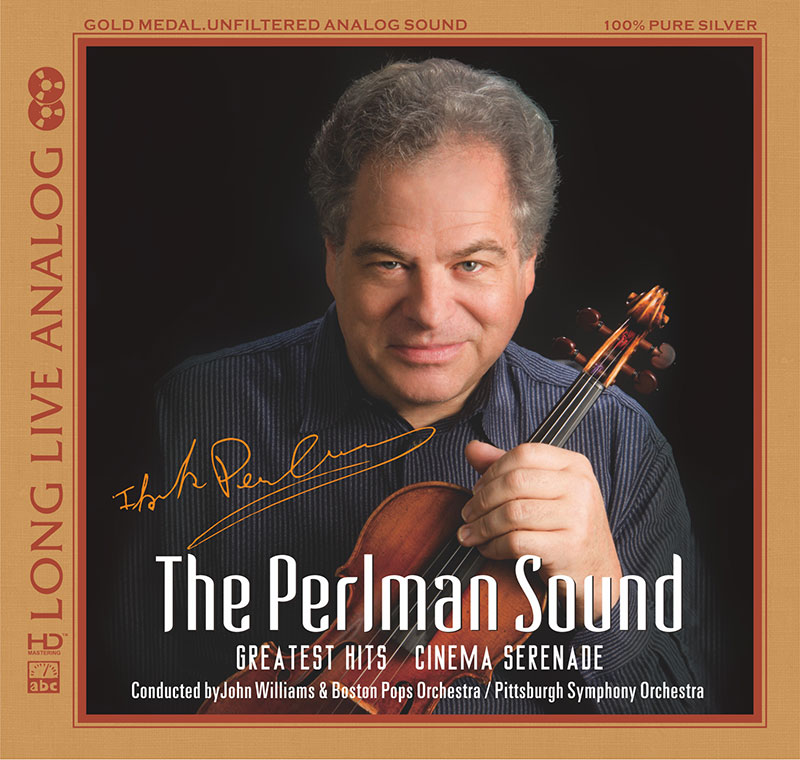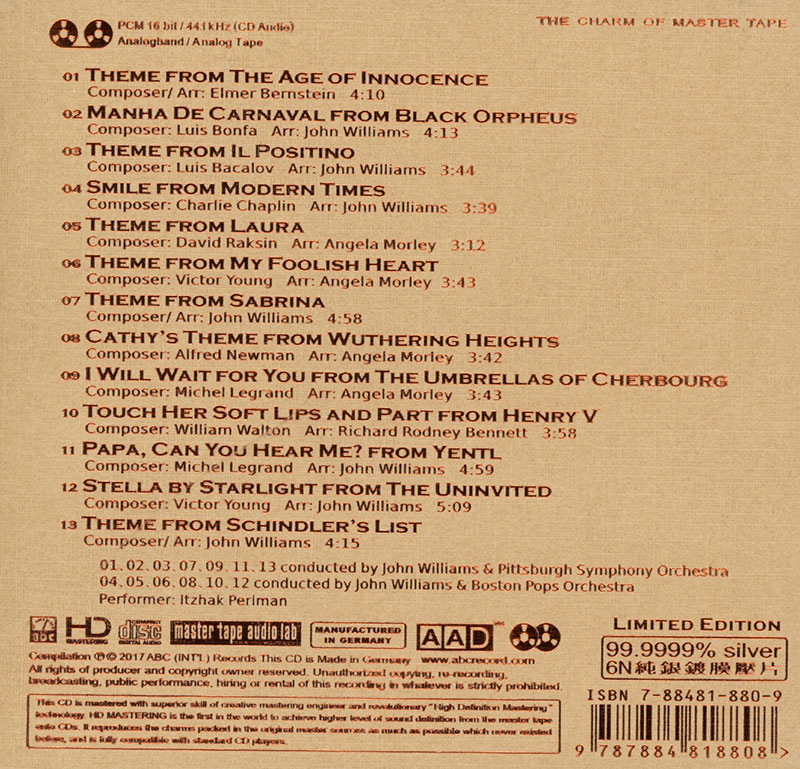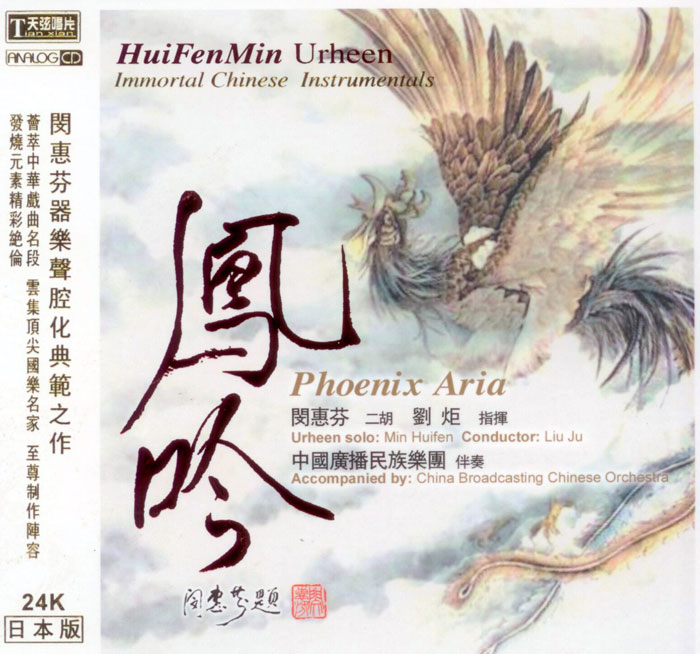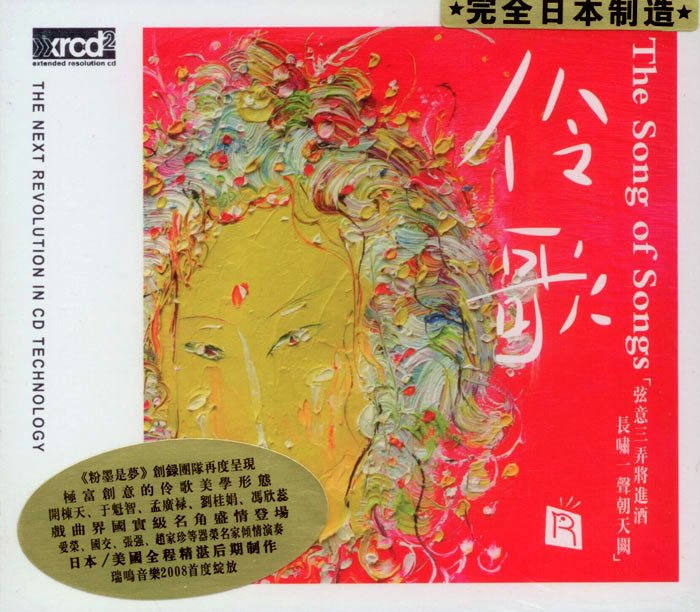Logowanie
OSTATNI taki wybór na świecie
Nancy Wilson, Peggy Lee, Bobby Darin, Julie London, Dinah Washington, Ella Fitzgerald, Lou Rawls
Diamond Voices of the Fifties - vol. 2
Tylko 1000 egzemplarzy!!!
DVORAK, BEETHOVEN, Boris Koutzen, Royal Classic Symphonica
Symfonie nr. 9 / Wellingtons Sieg Op.91
nowa seria: Nature and Music - nagranie w pełni analogowe
Petra Rosa, Eddie C.
Celebrating the art and spirit of music - vol. 3 - Pure
warm sophisticated voice...
Peggy Lee, Doris Day, Julie London, Dinah Shore, Dakota Station
Diamond Voices of the fifthies
Tylko 1000 egzemplarzy!!!
SAMPLER - STS DIGITAL, Buddy Tate, Milt Buckner, Walace Bishop
Jazz Masters - Legendary Jazz Recordings - v. 1
proszę pokazać mi drugą taką płytę na świecie!
Chesky! Niezmiennie perfekcyjny
Winylowy niezbędnik
ClearAudio
Double Matrix Professional - Sonic
najbardziej inteligentna i skuteczna pralka do płyt winylowych wszelkiego typu - całkowicie automatyczna
John Williams, Luiz Bonfa, Charlie Chaplin, Victor Young, Itzhak Perlman, Pittsburgh Symphony Orchestra
The Perlman Sound

- Luiz Bonfa - guitar
- Victor Young - conductor
- Itzhak Perlman - violin
- Pittsburgh Symphony Orchestra - orchestra
- John Williams
- Charlie Chaplin
AAD is a Digital Copy Of
The Master Tape
*******
Nowa, limitowana seria najbardziej audiofilskich nagrań analogowych.
Każdy z utworów jest bezpośrednią kopią z taśmy matki.
Płyta, na której umieszczono nagrania została wykonana z tworzywa ciekłokrystalicznego.
Natomiast warstwa nośna - to najczystsze srebro!
******
 The Perlman Sound
Itzhak Perlman, a magical world character, a violinist who has to walk by sticks for suffering from polio and has to sit on a chair to perform front audiences. He wins the glorious reputation and praise all over the world with his superb and consummate violin techniques. People called him "the violin of Pavarotti, the player of the Maradona or Pele." Where he and his violin appear, where will linger with music, where will roll up a fanatical whirlwind.
Perlman, a rich experienced man, full of charm of a philosopher with distinctive character, has kept an indissoluble bond with films. Although the film music mostly is created to shape the plots of film, but if well written, it is also quite beautiful, which can be enjoyed independently, and in particular, not limited to any field of music, that is, it can touch the classical music appreciation, also can make people who like pop music deeply intoxicated.
This album repertoires are all the film music performed by Perlman, all are touching and famous film music. In this album, Perlman not only reinterprets the soundtrack "Schindler‘s List" with the cooperation with John Williams, a composer who had won five Academy Award for Best Soundtrack, but also stretches to many well-known film music in recent years, such as “Theme from The Age of Innocence”, “Theme from Il Positino” and “Stella by Starlight from The Uninvited " and so on. The album selects seven works of John Williams, the rest are European and American film soundtracks. When you listen to these music, you can not only indulge in these original soundtracks’ melody, also will be moved by the exquisite and refined performances of Perlman, in additional to the arrangement of John Williams, making these songs more perfect and complete than the originals. All these songs bring us back to the moving and impressive plots of film.
“Their playing is immediately enjoyable for its warmth, its rhythmic impulse and its very positive directness... The Melos, with their pungent accentuation, are splendid in the tempo risoluto variation of the second movement (of Schumann’s Third Quartet) and in the dancing finale, just as they are in the exuberant vitality of the First Quartet’s concluding Presto.” (Gramophone, April 1989)
The Perlman Sound
Itzhak Perlman, a magical world character, a violinist who has to walk by sticks for suffering from polio and has to sit on a chair to perform front audiences. He wins the glorious reputation and praise all over the world with his superb and consummate violin techniques. People called him "the violin of Pavarotti, the player of the Maradona or Pele." Where he and his violin appear, where will linger with music, where will roll up a fanatical whirlwind.
Perlman, a rich experienced man, full of charm of a philosopher with distinctive character, has kept an indissoluble bond with films. Although the film music mostly is created to shape the plots of film, but if well written, it is also quite beautiful, which can be enjoyed independently, and in particular, not limited to any field of music, that is, it can touch the classical music appreciation, also can make people who like pop music deeply intoxicated.
This album repertoires are all the film music performed by Perlman, all are touching and famous film music. In this album, Perlman not only reinterprets the soundtrack "Schindler‘s List" with the cooperation with John Williams, a composer who had won five Academy Award for Best Soundtrack, but also stretches to many well-known film music in recent years, such as “Theme from The Age of Innocence”, “Theme from Il Positino” and “Stella by Starlight from The Uninvited " and so on. The album selects seven works of John Williams, the rest are European and American film soundtracks. When you listen to these music, you can not only indulge in these original soundtracks’ melody, also will be moved by the exquisite and refined performances of Perlman, in additional to the arrangement of John Williams, making these songs more perfect and complete than the originals. All these songs bring us back to the moving and impressive plots of film.
“Their playing is immediately enjoyable for its warmth, its rhythmic impulse and its very positive directness... The Melos, with their pungent accentuation, are splendid in the tempo risoluto variation of the second movement (of Schumann’s Third Quartet) and in the dancing finale, just as they are in the exuberant vitality of the First Quartet’s concluding Presto.” (Gramophone, April 1989)


































